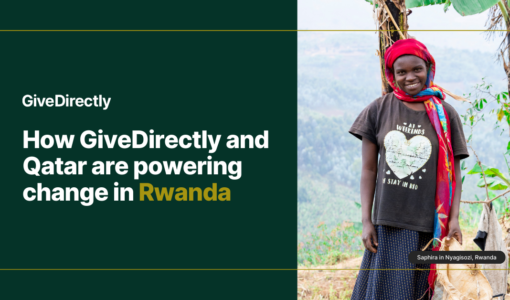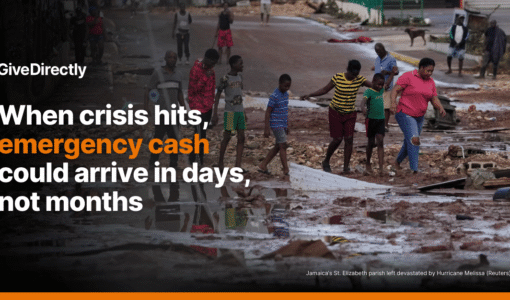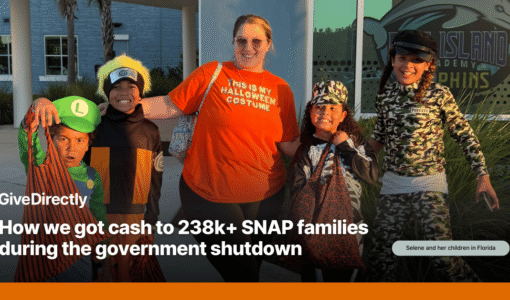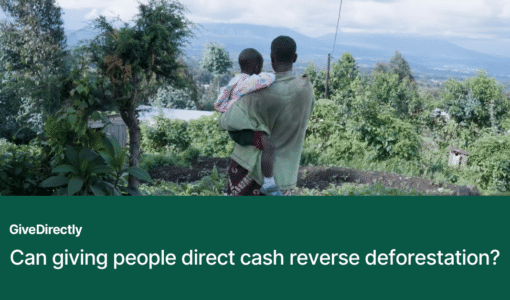We asked members of our team who are from or have spent a lot of time in the U.S. a simple question: Do you give cash to the homeless in the US?
We were inspired by a blog post in which Chris Blattman asks: “Why do I think it’s a good idea to give cash to the poorest in Uganda, but not to the homeless of NYC?”
The question resonated strongly with many of us, including those of us in our NYC office, so we thought it would be interesting to see how members of the team – whose job it is to send cash directly to the extreme poor in Kenya and Uganda – feel about giving cash directly to the poor in their own country.
Of the 11 of us, 2 give most of the time, 5 occasionally, and 4 never. Everyone was asked to explain their responses, all of which you can see here.
One theme that comes up repeatedly – as would be expected, among this group – is that of evidence. It’s a fact that we simply don’t know much about the impact of cash transfers on the homeless in the U.S. As Blattman writes in the New York Times, there are only a few examples of organizations or individuals giving out cash and monitoring the results. Although these have been promising, they have not focused specifically on the homeless, nor have they been conducted at a large-enough scale to glean conclusive answers.
Another theme that emerged from the responses was that of the cost-effectiveness of giving at home versus abroad. One respondent wrote:
“I think that giving money to poor people overseas is probably much more cost effective (in other words, it does more to lift people out of poverty per dollar).”
While it is certainly true that there’s more evidence for giving to the poor in developing countries, and that a dollar goes much farther elsewhere, it’s important to balance the focus on evidence and cost-effectiveness with the fact that there are thousands of individuals in our own communities who are poor and struggling. One respondent eloquently summarized that sentiment in this response:
“I don’t feel confident giving directly to the poor in the US without more evidence akin to what we have in most of the developing world, given the huge differences in culture and poverty. But, I give from time to time to make sure that saying “no” too many times doesn’t harden my basic compassion for people who are suffering, regardless of why, or of what impact my money will have.”
Asking this question was an interesting thought experiment for me as a recent addition to the team — and as a native New Yorker who is no stranger to being asked for money on the street. It confirmed, unsurprisingly, that for us at GiveDirectly, ensuring that our money has as large an impact as possible is paramount. Unfortunately, without further experimentation, there’s no way to know whether the cash we give is having any effect, let alone a positive one. Hopefully this conversation marks the beginning of a real shift in how we think about homelessness in the US, and prompts further research into the impact of cash on this population. The homeless here shouldn’t be cut off from a potentially effective intervention, simply for a lack of evidence.



